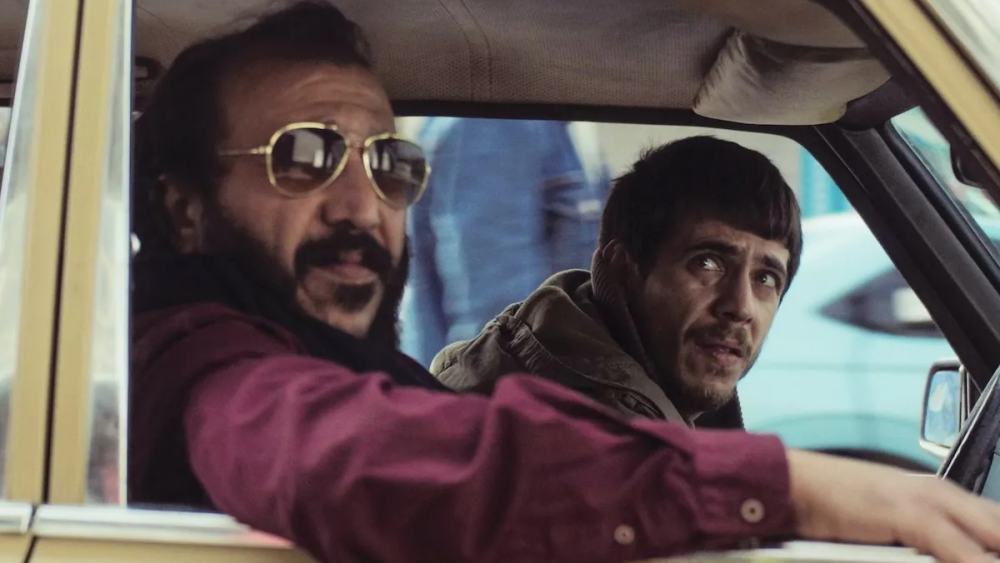
During the Cannes Film Festival earlier this year, Jordan’s Royal Film Commission presented its revamped cash rebate program, jumping from 25% to a tiered system that can grant productions a return of up to 45% of local spend, plus an automatic exemption from the Kingdom’s 16% VAT and 10% withholding tax to reach a combined savings of up to 56%.
This aggressive new program comes as a response to increased rebates in the Arab world as well as European countries like Greece, a move that has forced a traditionally welcoming Jordan to up its game rebate-wise.
Only a few months have passed since the announcement, but Jordan has already seen an “overwhelmingly” positive response, according to the Royal Film Commission’s head of production services and communications Bashar Abu-Nuwar. Speaking with Variety, the exec says they have “many more projects in the pipeline than anticipated,” including projects that have recently shot in the country and already benefited from the new rebate, including “Atonement,” the latest from Oscar-nominated director Reed Van Dyk, starring Kenneth Branagh, Hiam Abbass and Boyd Holbrook.
“Our incentives started in 2018, but after COVID, the percentages have become much more competitive,” continues Abu-Nuwar. “Before the new program, we were negotiating on a project basis and offering higher percentages to specific productions, and it was a complicated process as it involved many more steps.
It is much easier now and means less work for us and for producers. We have also tried to make our guidelines as transparent as possible and haven’t faced any issues so far.”
One of Jordan’s leading producers and founder of the Imaginarium Films, Rula Nasser (“Holy Spider”) concurs. “It’s clear that Jordan’s rebate already stands out as the fastest and least bureaucratic in the region. With the updated guidelines, the process has become even more streamlined, making audits simpler while ensuring that payment terms and timelines are highly supportive for producers. This reliability allows producers to confidently count the rebate as part of their financing structure.”
Nasser also points out how the new scheme has led to new types of projects showing up on her desk, with teams asking how they can adapt their stories to take place in the country. “This shows that such an announcement has drawn real attention to Jordan, inspiring creatives to integrate elements that would also make their projects eligible here.” One of the Royal Film Commission’s main focuses is to host productions that can elevate the country’s profile internationally, particularly those that shoot Jordan for Jordan.
In a study commissioned by the entity, it was revealed that, out of over 140 productions shot in the kingdom, only four did not double the country for another location — and three were non-fiction projects. Now, productions can obtain an additional 10% rebate “based on a cultural test and a full evaluation of the project, including sustainability, number of filming days, hiring local crew and filming Jordan for Jordan,” notes Abu-Nuwar.
“We’ve doubled most of the world, even places like Washington with our contemporary buildings and business areas, and Palm Springs near our beaches,” says Abu-Nuwar. “We are open to any project that might want to use Jordan to re-create another location, but we also want to see our kingdom on screen in all its cultural and geographical identity,” continues the exec, reinforcing the film commission’s commitment to employing film as a tool not only for strengthening tourism but also Jordan’s image abroad.
But there are also projects that, despite not necessarily representing Jordan for Jordan on screen, still directly tap into the country’s cultural fabric, such as Tarzan and Arab Nasser’s “Once Upon a Time in Gaza,” which won the best director award in Cannes’ Un Certain Regard section earlier this year. The seventh project the Nasser brothers have shot in the country since leaving Gaza back in 2012, the film turns the kingdom into the titular Palestinian city.
“Choosing Jordan as a filming environment is a very healthy decision,” affirms Arab Nasser. “Especially as its film industry continues to grow year after year, with expanding infrastructure, new studios and modern facilities that attract more and more filmmakers and production companies. This is what gives Jordan an ever-increasing advantage over the years.”
When asked about how the ongoing conflicts in the region, including in his native Palestine, are affecting where Arab filmmakers shoot their films, the director was quick to say he sees Jordan as a “safe haven,” as well as highlight the sociopolitical and cultural kinships shared between the two territories. “The Palestinian community forms an essential part of Jordan’s social fabric, particularly with the presence of many refugee camps since 1948 until today.
Jordan is an Arab country, and shooting there does not diminish the value of the original producing country. On the contrary, it reflects a professional and elevated form of artistic and cultural cooperation among Arab nations.” Notably among such elements is the quality of Jordanian crews, largely considered to be some of the best not only in the Arab region, but in the world.
The decades-long presence of large-scale studio productions has ensured a constant stream of trained talent, with productions shot in Jordan — be they national or international — comprising on average 50% local crews.
“The local talent [is] highly professional and experienced, on par with their counterparts coming from abroad,” says Arab. “We felt this very clearly in our own experience, where the Jordanian crew became an essential and effective presence in [the] production.” Rula Nasser adds that local crews are “often invited to travel and work on productions in other countries,” with Jordan becoming an even more attractive destination given that it can offer top talent at “modest rates.”
Recently, Rula Nasser was the local producer for Jordan’s official Oscar submission, Cherien Dabis’ Sundance breakout “All That’s Left of You.” She is currently developing three U.K. projects, a Belgian production and a new feature by Bassel Ghandour, whose “The Alleys” premiered in Locarno back in 2022.
Jordan will also be seen on the big screen during the buzzy fall festival season, with Annemarie Jacir’s “Palestine 36” and Zain Duraie’s “Sink” premiering in Toronto. The Film Commission also teased a “major Hollywood feature” confirmed to begin filming in the country in December, although details are still kept under wraps.
“American studios are coming back to Jordan,” Abu-Nuwar is happy to confirm. But the exec is also concerned with underlining Jordan’s commitment to not only retaining its spot as a prime destination for major Hollywood affairs, but also a country that welcomes smaller independent productions that are vital to building a sustainable ecosystem.
“We now offer an advance payment of 10% [of the rebate], capped at $100,000, to directly support smaller projects. We are also working with local banks to give more attractive loans and subsidies for productions happening in Jordan, especially the ones getting a rebate. For big studios, financing is much less of an issue, but for our local industry and smaller European projects, it helps a lot. Jordan is open and is open to everyone,” concludes the Film Commission rep.



